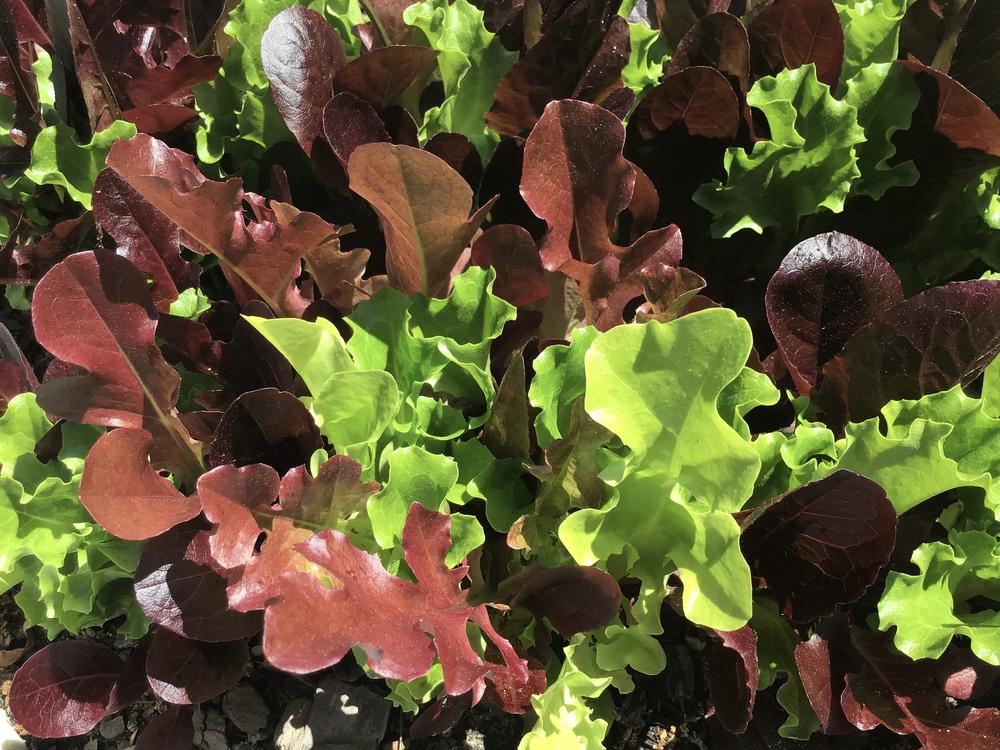Eating vegetables fresh from the garden is one one of the best parts of summer. But as the gardening season draws to a close, there is no need to forgo the pleasures of a homegrown harvest. Giving cold-tolerant plants a little extra protection allows you to keep picking even as the weather turns cold. And if you can provide them with the conditions they need, a number of crops can be stored and enjoyed into the fall and winter.

Wherever you garden, from the northern states and high mountain elevations to the balmier southern states, the growing season often seems just too short. Use the following tips and techniques to reap the biggest bounty from your garden and stretch extra days and weeks out of your growing and harvesting season.
Protect from early frost. In fall, freezing temperatures limit plant growth in northern latitudes and at high elevations. Keep a supply of old sheets or blankets on hard so they are easy to grab and toss over vulnerable plants on a night when an early frost is predicted. Cover late season plantings with fabric row covers, mini-greenhouses made from clear plastic, or even old window sashes set on hay bales. Vent the covers on warm days to prevent excessive heat buildup.
Make late-season plantings. Extend your harvest into fall by planting second crops of short-season vegetables, such as peas, greens, radishes, lettuce, cole crops,spinach, and turnips later in the season so they mature after you harvest your summer crops. The longer the frost-free season in your area, the greater the variety of fall crops you'll be able to grow.
Choose hardy crops. End the gardening season with cold-hardy vegetables that tolerate frost, such as peas, Brussels sprouts, cabbage, broccoli, collards, kale, leeks, beets, and chard.
Here are some of our offerings that make great choices for late season harvests.
'Vates' Collards (75 days) - Large dark-green leaves have a mild, cabbage-like flavor that tastes even better after a mild frost.
Mesclun Mix - This mix of mild leaf greens, including endive, kale, arugula, and a variety of lettuces, provides a quick harvest.
Taht Soi (Oriental) (45 days) - Small, spoon-shaped, black-green leaves mature quickly and are great in salads and stir-fries.
'Early Fall' Rapini (Raab) - Well-suited to early fall planting and winter harvest in the southern U.S., this Italian specialty is used in salads and light cooking.
'Contender' Garden Bush Bean (49 days) - The slim, stringless, tender pods of this highly productive variety are ready for harvest quickly.
'Nobel Giant ' Spinach (43-46 days) - This prolific variety produces large, smooth, dark-green leaves.
'Triple Curled' Parsley (70 days) - This is the most popular variety of this vitamin-rich herb for garnishing and flavor.
More Season-Extension Savvy
Take advantage of microclimates. Some areas around your property may stay warmer or are sheltered from the wind or frost. For example, gardens at the top of a slope often avoid an early frost as cold air settles in lower areas. Use these protected sites to grow vegetables later in the season.
Invest in a cold frame. A cold frame can extend your garden season no matter what part of the country you live in. Cold frames are basically little houses where plants can have a head start in spring and extra growing time in the fall and early winter. You can purchase a cold frame or make your own. If you have an old storm window and some planks or scrap lumber, you can put together an easy cold frame. Nail the wood together to fit under the storm window. Instead of cutting the sides on a slant, just build the frame as a box and simply top it with the storm window. Skip the hinges. On hot days, slide the window to the side to let heat out; on cold nights, put the window squarely over the top of the frame and cover it with an old blanket. In the summer when you don't need it, it's easy to store.
Cold frames are great for extending the growing season of winter-type lettuces and other cool-season crops like arugula,lettuce, parsley, radishes, scallions and spinach past that of the open garden. Keep a thermometer in the cold frame to help monitor temperatures. Vent the frame when daytime temperatures go above 50 degrees F for cool season crops. Close it back up when temperatures drop below 45 degrees F.
Mulch root crops for an extended harvest. Storing your crops where they grew -- what could be easier? If your soil freezes hard, you'll need to insulate the ground around your root crops so they don't freeze. Put a 10-12-inch layer of mulch over the rows, extending out 18 inches on each side. This will keep the soil around the roots at an even 35- 40 degrees F -- the ideal storage temperature. Once the mulch is down, you can go out anytime, move it aside and dig up some fresh roots. You can even dig carrots, beet,s and parsnips out from under two feet of snow! Vegetables stored in the ground don't have good keeping power once you dig them, so be sure to use them within a day or two.
If you live where winters are mild or warm, in-ground storage of turnips, beets, carrots, and radishes is a good option. In warm-winter areas, however, you need to insulate your root crops to maintain a cool soil temperature to prevent them from sprouting. Cover the rows with a 6- to 8-inch layer of mulch, extending it 18 inches on either side of the rows.
 Victory Seed Company has all the seeds you want for your best garden in 2024.
Victory Seed Company has all the seeds you want for your best garden in 2024.
For 25 years, the family-owned Victory Seed Company has provided the highest quality vegetable, herb and flower seeds to families across the country. We are passionate about providing you the best seeds available that give excellent germination, robust plants, and the harvest you want. With a catalog of over a thousand varieties, we have everything, and our prices are the kinds that we'd want to pay. We have hundreds of yesterday's heirloom vegetables, as well as today's award winning hybrid selections. Get to know us by visiting our website and browsing through our online vegetable seed catalog.